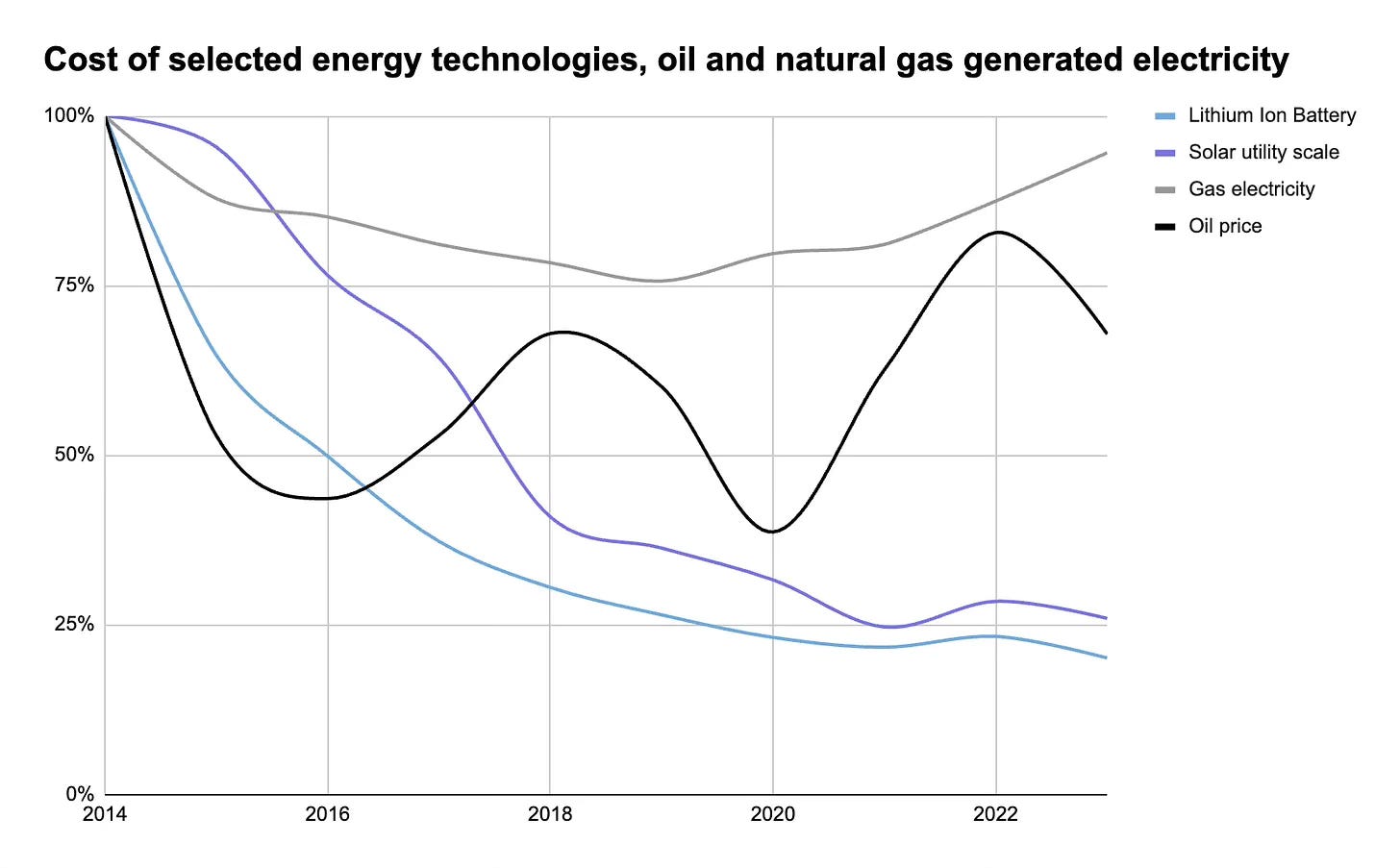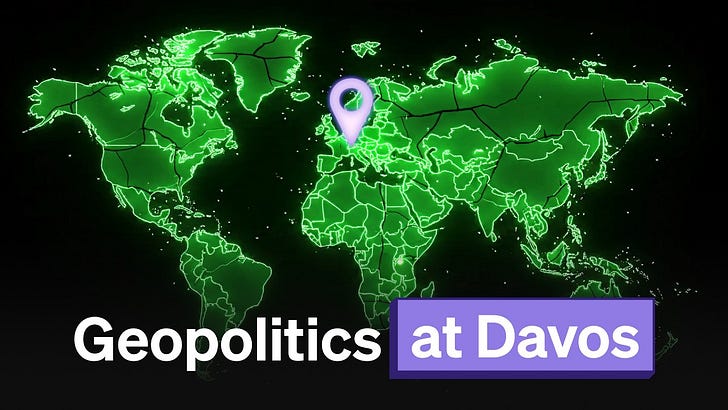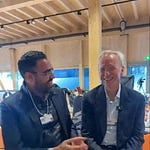When I look back on our recent history—from around 2014 to today—I see an era that future historians will call an inflection point. Much as the 1920s and 1930s fundamentally differed from the world of the late 1800s, we’re going through a similarly significant transition now. We have game-changing technologies and volatile geopolitics. In my view, this period will be studied as the moment when economic and political models were reshaped.
I wrote a book about this in 2022; if you’re new to my work you can pick it up here.
I draw heavily on the work of economist Carlota Perez who outlined how the changing underlying technological paradigm brings with it financial speculation, bubbles and wealth accumulation. It requires an institutional recomposition which fundamentally heralds a golden age.
Things are breaking apart, but also recombining in new ways. Yes, it is about tech but it’s also about deeper social, cultural and economic realignments.
I hosted a briefing for the Exponential View members community this week about my five-to-ten-year horizon scan. I’m sharing the recording today for those who missed it and detailed notes to help you get through the dense hour we spent together.
Thanks to all who joined me – I’ll soon post dates for the next community gathering in February. If you’re not a member yet, this is your chance to change that and join the community.
My five themes in focus:
Society of AI
Energy as technology
Rising domestic agendas
Geofragmentation
Social and cultural “vibe shift”
Let’s go through each…
1. The shift to a society of AI
My own AI usage has exploded over the last 18 months, and I’m not alone.
State of the art tools keep smashing benchmarks and my personal conversations with frontier researchers confirm they don’t see a near-term “wall” in AI progress. Yes, training is expensive at first, but engineers keep finding ways to optimise.
However, the bigger sticking point is productisation and integration. We don’t yet have polished workflows that allow complex, multi-agent setups to hum flawlessly. My team and I try using agentic systems for research, editing and argument-structuring—but it’s still cumbersome. Yet I have no doubt we’ll look back and wonder how we ever managed without AI handling routine tasks.
Ultimately, this reshapes organizations. When electrification replaced steam power in factories, people had to redesign workflows around smaller, distributed motors. AI is our “electricity of thought”.
At the same time, I’m aware of a growing cultural friction—people who embrace AI wholeheartedly could pull ahead in productivity, while others might opt out for personal or ideological reasons. We may end up with a deep divide between “AI natives” and “AI abstainers.”
2. Energy shifting from commodity to technology
Whenever I assess the energy landscape, I compare it to the telecom world 30 years ago. We used to have expensive, centralised phone monopolies. Then the internet arrived—cheaper, modular and wildly innovative. Renewable energy is doing the same: solar, wind and batteries have moved energy from a commodity to a technology. That means costs can drop drastically over time and power generation or storage can be increasingly decentralised.

This shift holds profound implications.
Where previously only a few nations had real “energy sovereignty,” small communities and even individuals can now generate or store energy locally. Opportunities also balloon in software and market design—real-time pricing, virtual power plants, peer-to-peer energy trading and so on.
It’s crucial to realize this goes well beyond “defossilisation.” We’re not just replacing coal with solar. We’re building an interactive, technology-based ecosystem, much more akin to the internet than the old power grid. Over five to ten years, many wealthy economies will complete major steps in this direction, though big questions remain over things like regulation, permitting, and supply-chain friction (e.g. transformer shortages).
3. Make your country great again – the rise of domestic agendas
In the political realm, I see a reversion to the mean. After decades of globalism and cosmopolitan thinking, many countries—from the US to Argentina, Canada to India—are pivoting inward, focusing on nationalism or populist policies. That isn’t inherently surprising; if you zoom out, these pendulum swings happen – although we’re at the highest level since 1930s.

It explains a lot of our current political sentiment.










